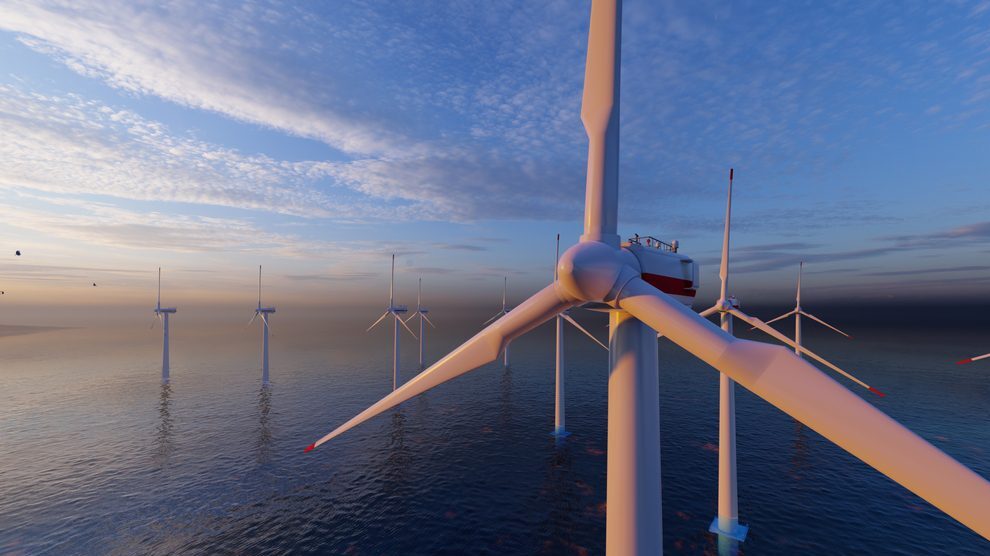
The European Parliament’s plenary adopted a new binding target for decarbonization across the bloc on Tuesday, September 12th, that will require every member state to significantly increase the share of renewables in their energy mix by the end of the decade. Some MEPs, however, criticized the plan for endangering Europe’s energy security, increasing dependence on China, and even triggering large-scale deforestation across the continent.
The EU’s “Renewable Energy Directive” aims to accelerate the bloc’s green transformation by requiring 42.5% (instead of the previous goal of 32.5%) of the energy consumption of each member state to come from renewable sources—while strongly encouraging them to reach 45%—by 2030.
Furthermore, the legislation will provide further subsidies for newly built renewable power plants—with special emphasis on wind, solar, and biomass—as well as increased funding for innovative technologies, such as hydrogen.
The law will also speed up the approval process of new construction projects by designating specific “renewable go-to sites” across Europe, where national authorities will have only 12 months to approve a proposed power plant. Outside of these areas, the law will set the maximum approval period at 24 months.
Despite the heated debate prior to the vote, the European Parliament adopted the directive on Tuesday by 470 votes to 120, with 40 abstentions. The legislation was supported by the vast majority of the EPP and all leftist parties (S&D, Renew, Greens, and The Left), while only the two conservative parties (ECR and ID) as well as a handful of independents voted against it.
While the leftist majority was hailing the directive as a historic step in the right direction (with a few MEPs giving voice to their frustration that the target was not high enough), most conservative parliamentarians took the stage during the debate to highlight the legislation’s underlying dangers and to call for a more rational examination of the issue—but to no avail.
“Having an ever more ambitious climate policy means that there will be huge challenges to some of our energy sectors. … We have 10% extra to reach until 2030, and this will have a knock-on effect on the prices in a variety of different sectors,” pointed out Grzegorz Tobiszowski (ECR), arguing that the directive will endanger the security of energy supply, which in turn will create instability on the market.
“We can’t simply put the risk on the consumer when it comes to the price stability of their sector. There’s a real gap between the sectors’ capacity and the energy transition’s ambition and climate change policy of Europe,” Tobiszowski said, adding that:
I fear that the objectives, as they are today, have been set under great pressure rather than on the basis of rational conversation.
Many of the conservative MEPs noted the absence of nuclear energy from the directive, even though nuclear power would provide a much cheaper and more secure alternative to fossil fuels than renewables ever could. “Renewable energy is not sustainable. Nuclear power doesn’t release any CO2 and doesn’t pollute the air. Nuclear power provides energy constantly, so you don’t need any fossil fuel backup,” ECR Vice Chair Rob Roos reminded his colleagues.
French MEP Nicolas Bay also spoke out for nuclear, saying that funding wind and solar while abandoning nuclear “for ideological reasons” is the opposite of defending the interests of Europeans, and the shift will drive up prices, harm the environment, and—ironically enough—increase Europe’s dependence on Chinese coal. As Bay concluded:
We need to guarantee our people a decarbonized, cheap, and plentiful source of energy so they can heat their homes and their children will have a future. We need an ambitious program to build the most recent generation of nuclear power plants in France and elsewhere in order to guarantee energy sovereignty.
The risk of increased dependence on China was echoed by the Swedish Johan Nissinen (ECR) as well, adding that “wind will not give us sufficient energy to drive a competitive industry, and the Commission knows it well.” He was joined by the Croatian Mislav Kolakušić, who criticized Germany for shutting down its nuclear plants and having to import energy from abroad.
“Germany destroyed its landscape with turbines; it looks as if it was occupied by aliens. Does it produce enough electricity? No,” Kolakušić said. “The idea of renewable energy sources as a potential that could meet the needs of the entire humankind is ridiculous and completely false.”
Another frequent criticism—brought forth by many leftists as well—was about the directive’s heavy promotion of biomass power plants, which, in most cases, simply burn wood to generate electricity. “Trees absorb CO2 and create a living environment for biodiversity. Biomass destroys that. Whole forests are being burned, thereby releasing more toxic substances and more CO2 than if we were burning coal,” Roos explained.
“With this directive, the massive burning of wood and its heavy subsidies will continue, and member states will still claim that they’re saving the planet by burning more and more wood,” the Slovakian Michal Wiezik (Renew) said, arguing that the process will also destabilize entire industries reliant on wood as well as trigger “large-scale deforestation” across the continent. He added:
This directive will introduce rules with loopholes only to satisfy the growing demons for wood in an industry built around very harmful greenwashing. We are burning down the forests together with our biodiversity, resilience, and capacity to withstand climate change. This is in no way “renewable.”
As expected, the EPP’s rapporteur, Markus Pieper, addressed none of these concerns in his after-debate speech, but instead acted as if the Parliament was unilaterally behind his proposal and stressed that the directive—which will force countries to rely more on the least secure energy sources—“proves that Brussels can also be unbureaucratic and pragmatic.”
